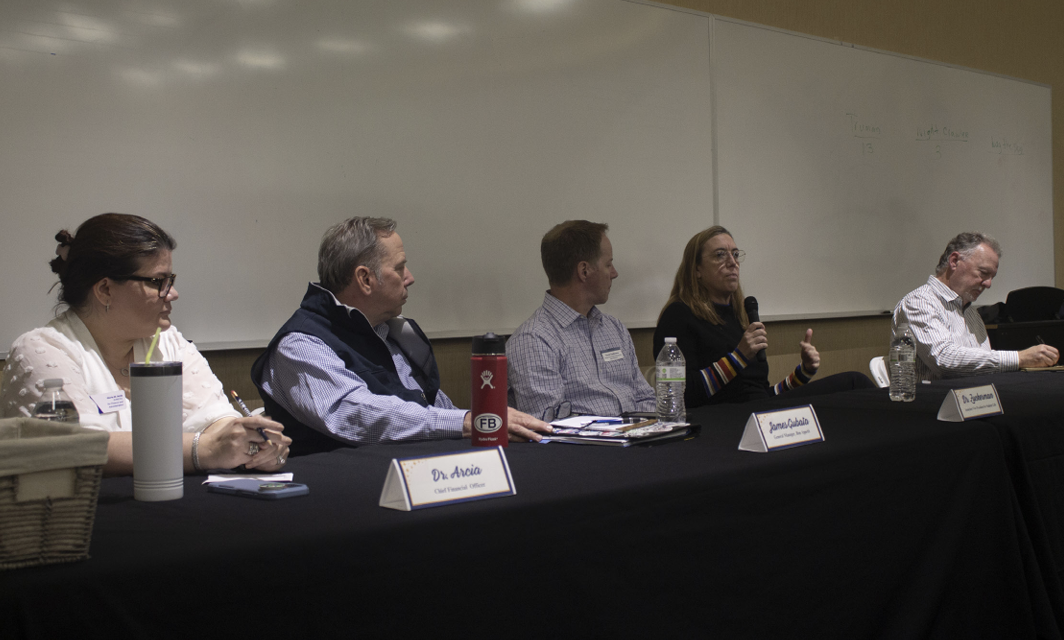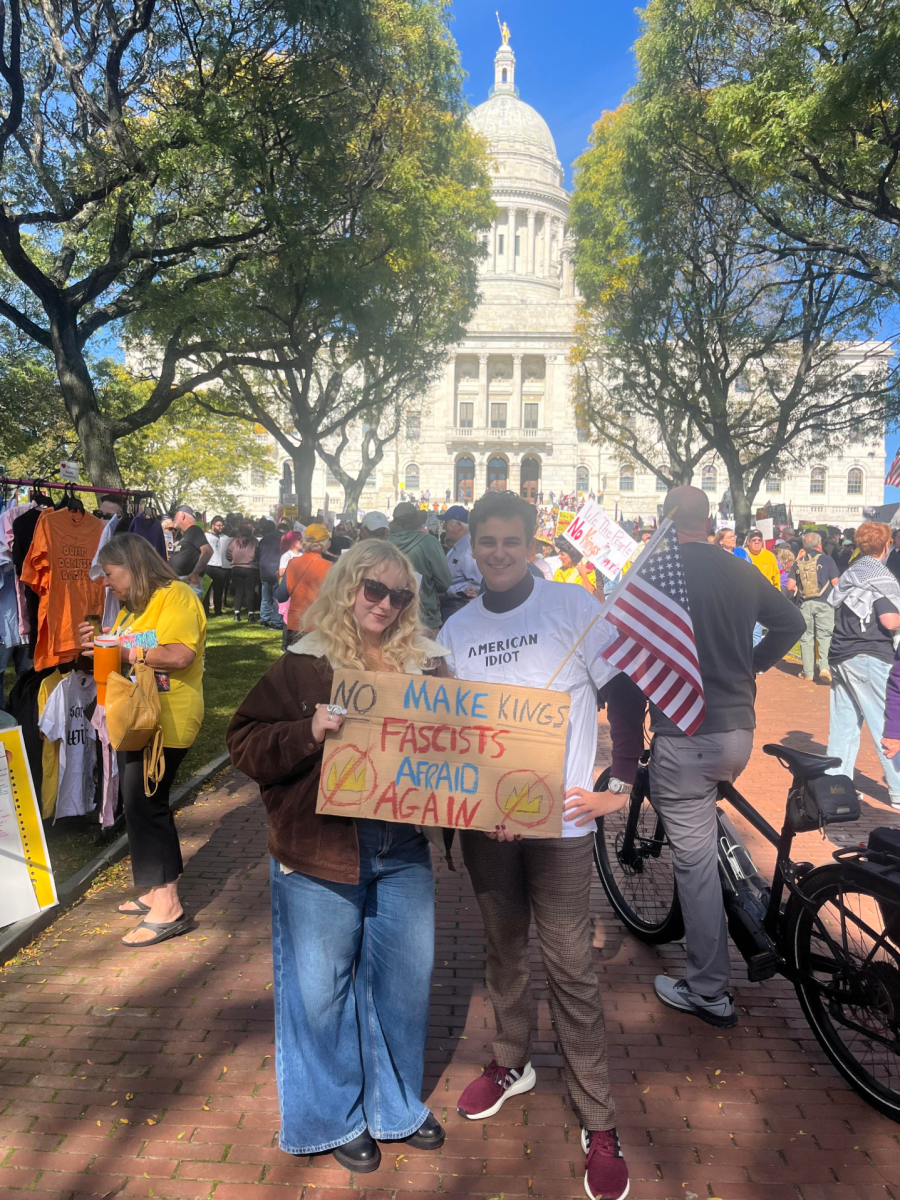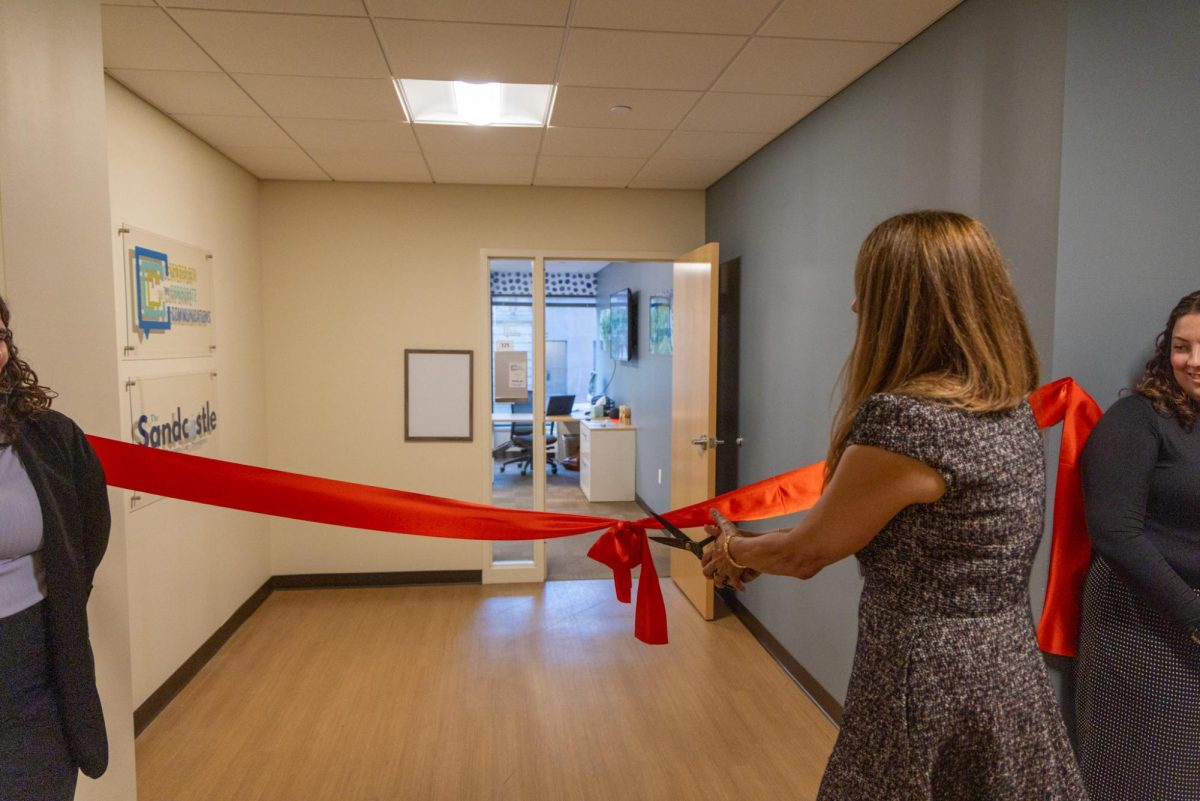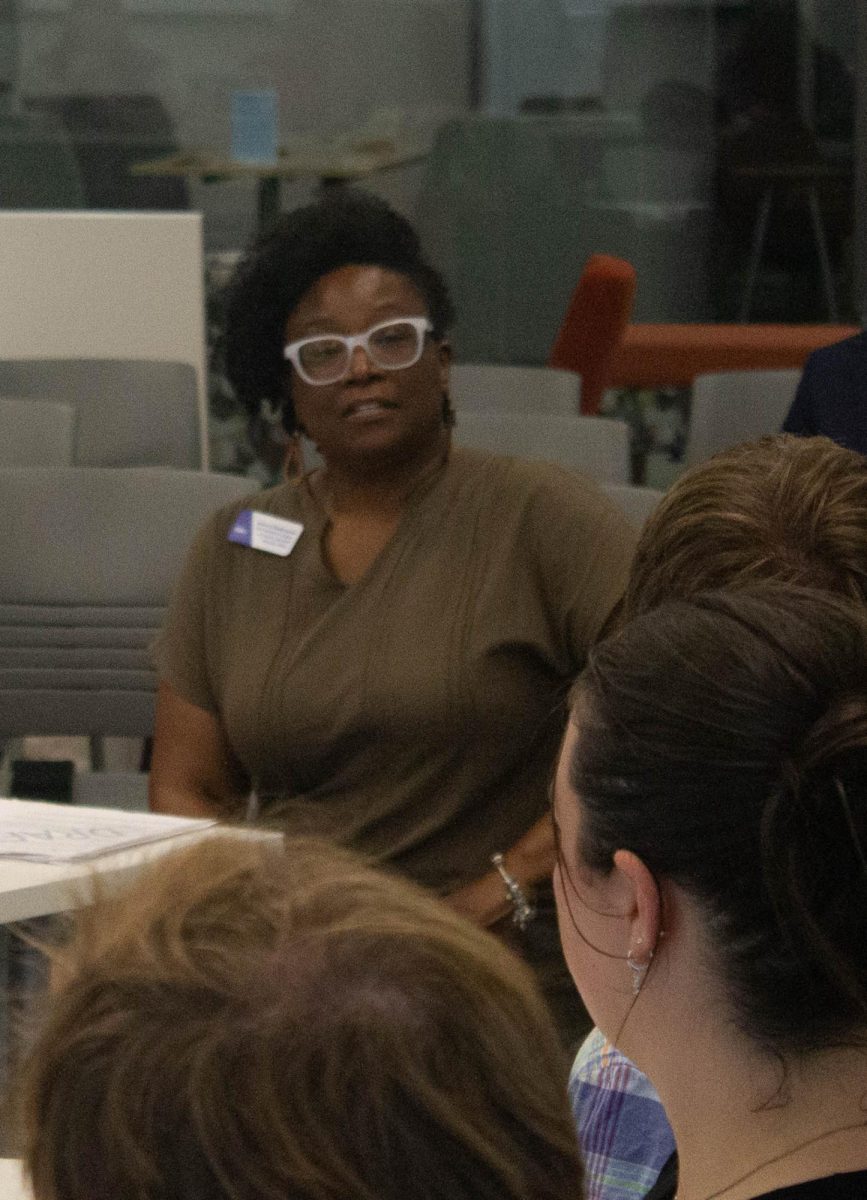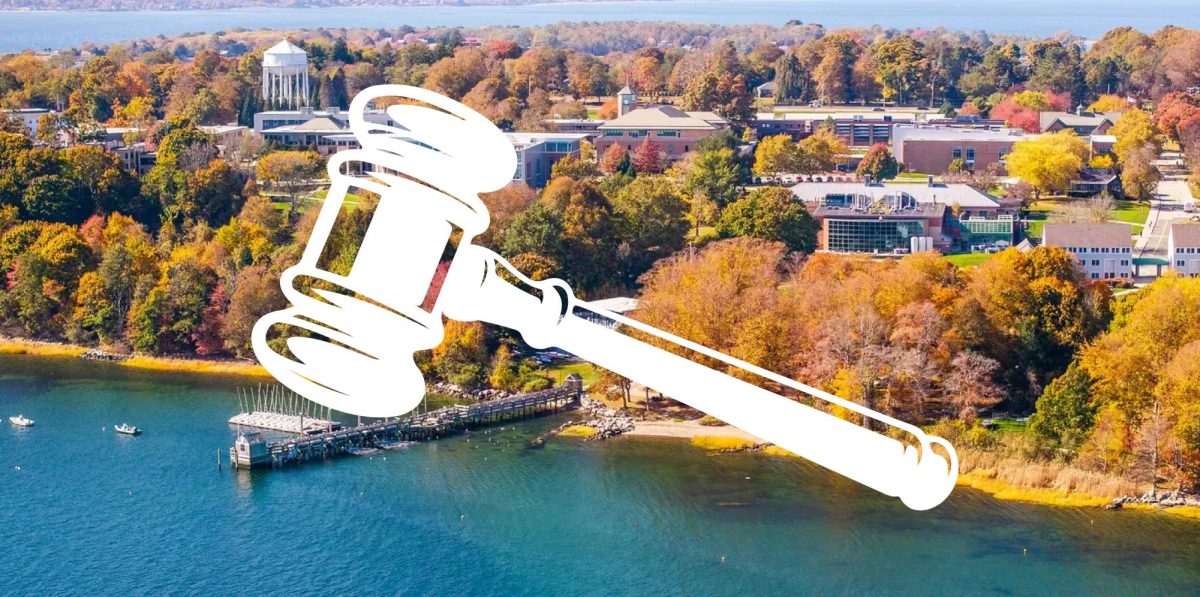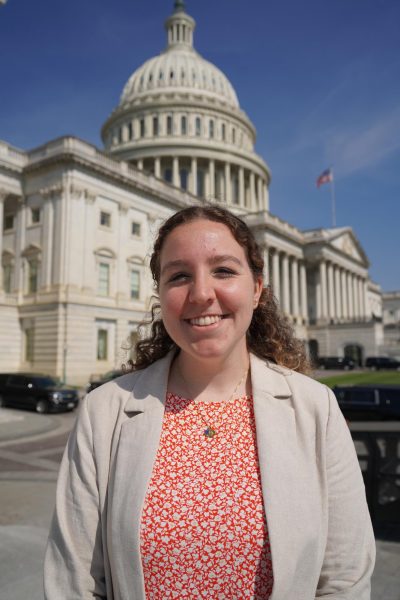“Do you even care about the students at RWU?”
Of all the questions submitted by students on index cards at the Student Senate Town Hall on Oct. 20, this was the most blunt of all. Student Senator Ella Rothberg read the question to Provost Margaret Everett, prompting a flurry of whispers and surprised looks across CAS 157.
The Town Hall presented an opportunity for students to ask their questions relating to the building swap of the Gabelli School of Business (GSB) and the humanities department in Global Heritage Hall (GHH), dining services operations, and the state of university finances. Students had the chance to write their questions anonymously for student senators to read to administrators.
Everett leaned into the microphone, ready to respond to the question that appeared to be related to the move of the School of Business into GHH.
“We do care about our students, and we want to disrupt their lives as little as possible,” Everett said.
Everett said would like to see the building swap – part of the long term academic masterplan which also includes improving labs and classrooms across campus – begin next year.
In addition to Everett, the panelists included Vice President of Student Life Dr. John King, Dean of Students Dr. Derek Zuckerman, Bon Appetit General Manager James Gubata, and Chief Financial Officer Dr. Gloria Arcia.
The School of Business statistically has the largest average class sizes of between 25 to 30 students as opposed to humanities who have the smallest average class sizes, Everett said. Originally the campus library, the GSB building is not built to hold classes that size. She added other nearby colleges and universities have larger buildings for their business schools
As the School of Business continues to expand, Everett also wants the growing business programs to be housed under one roof.
Overall, the goal of the building switch is to renovate both GHH and GSB to ensure there are specialized spaces for each program, Everett said.
Student Senator and Clubs and Organizations Chair, Henry Siravo asked Everett what kind of reaction she received from faculty members regarding the swap.
The provost replied that she received mixed reactions from faculty: “Some are not happy, but some are happy and hopeful for a Center for Humanities.”
Business faculty are excited for having more space for their growing programs, she said, and she said she can see the specialized rooms in the GSB building accommodating humanities well.
Arcia said that the renovation price tag would be between $10 million and $15 million and that the university is working with a range of architects to finalize a design.
Another question was asked the provost how, when, and if there would be an official communication from the administration about the building swap. She said the administration is currently in the planning process and is coordinating with the Marketing Communications Department to keep the RWU community informed.
Hard ice cream makes a return
The conversation then transitioned to dining related topics including the Hawks’ Nest and the Commons renovation.
Bon Appetit General Manager James Gubata praised the Commons staff for doing offsite catering all summer for orientation.
Gubata said the staff is still going through the steps of training and listening to student feedback to ensure Commons can offer a good experience.
Hard ice cream is also making a return at Upper Commons, Gubata said that it will be a few weeks before it is fully up and running but it is making a comeback. That news drew excited murmurs and hushed cheers from the audience.
“I am so excited for hard ice cream to come back to Upper, I really missed it,” junior Sydney Wood said.
Smoothies are also back after high demand and feedback from students, Gubata said. The Hawks’ Nest also saw a soft reopening earlier that same day. The Hawks’ Nest is open weekdays from 1 to 5 p.m. It will also be opened as a concession stand during athletic events.
Students asked Gubata about the CAS Cafe returning. He replied the CAS Cafe will not be coming back and that the area in CAS would see new vending machines.
University finances
Arcia closed out the program by giving a brief overview of the state of the university’s finances.
In FY 25, Arcia faced an $11 million structural deficit which was then reduced to about $6.5 million by cost saving measures by the time the board approved the budget in October.
Arcia said parts of the deficit were due to the guaranteed tuition freeze policy that started in 2012 and declining enrollment.
“The deficit is completely manageable,” assured Arcia.
The level of spending is more noticeable year to year as enrollment continues to decline and expenses continue to go up, said Arcia.
According to Arcia, there have been two small waves of reduction in force in December 2024 and August 2025 which reduced 3.8% of all full-time employee positions. For the reduction in force, Arcia said every position was considered. She also said that all of the cabinet members were not taking increases in salaries this year.
Arcia said RWU’s discretionary spending must be reduced. Arcia said that at present, the university is focusing on curtailing and being more disciplined with 40% of the operational budget that is controllable discretionary spend of roughly $21 million.
Through work over the summer, the Cabinet reviewed RWU’s spending, Arcia said the administration was able to find redundancies and ways to save money.
A student asked Arcia if the university has a structural deficit, why is the university taking on all of the additions and renovations.
Arcia assured that money is budgeted for operations, for example, any money that is operational can only be used for operations purposes (i.e, supplies, instructional supplies, utilities, etc.). The capital expense budget can only be used for capital improvements, and renovations to infrastructure.
“We have to stay competitive and invest into the university,” said Arcia, justifying the overarching improvements being planned for RWU.
Arcia closed saying she wants to institutionalize transparency in the financial process of the university: “We want to break barriers and be open about where we stand.”

